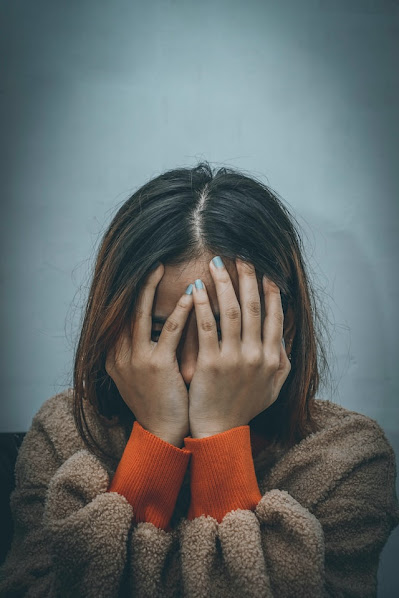[Curing Depression #4] Can depression be treated only with medication?
- Get link
- X
- Other Apps
Can depression be treated only with medication?
Depression cannot be treated only with medication. While medication can help to alleviate some of the symptoms of depression, it is typically most effective when used in combination with other treatments such as therapy, lifestyle changes, and support from loved ones.
Cognitive behavioral therapy (CBT), for example, can help people with depression learn new ways of thinking and coping with life's challenges. Lifestyle changes such as exercise, a healthy diet, and getting enough sleep can also play a role in treating depression.
It is important to work with a mental health professional to develop a comprehensive treatment plan that takes into account an individual's unique needs and circumstances. Medication may be an important component of this plan, but it is not a one-size-fits-all solution and should be used in conjunction with other evidence-based treatments.
The more severe the symptoms of depression, the higher the number of oral medications
The average number of oral medications taken by people with depression varies widely depending on the severity of their depression, their response to treatment, and any comorbid conditions they may have. It's also important to note that the number of medications taken may change over time as the person's symptoms and treatment needs evolve.
Some people with mild to moderate depression may only take one oral medication, while others with more severe depression or multiple comorbid conditions may take multiple medications. In some cases, people with depression may take a combination of antidepressants and other medications, such as mood stabilizers or antipsychotics, to address their symptoms.
It's important to note that the decision about how many medications to take should be made in consultation with a mental health professional, who can assess the individual's needs and determine the most appropriate treatment plan. The goal of treatment is to effectively manage the symptoms of depression, so the number of medications taken may change over time as the person's treatment needs change.
Why depression cannot be treated solely with medication
Limited efficacy
While some types of antidepressants can be effective in treating the symptoms of depression, they do not work for everyone, and even for those who do respond, the relief is often partial and temporary. Some people may experience significant side effects from taking medication, which can limit its effectiveness or make it intolerable.
Root causes
Depression is often a complex condition with multiple causes, including genetics, environment, stress, and life events. Medication can only address the symptoms, but not the underlying root causes of depression. Therefore, in order to effectively treat depression, it is important to address both the symptoms and the underlying causes.
Comorbid conditions
Depression often co-occurs with other mental health conditions, such as anxiety, bipolar disorder, or substance abuse. In these cases, medication alone may not be enough to address all of the symptoms and underlying causes of depression.
Long-term treatment
Depression is typically a chronic condition that requires long-term treatment and management. While medication can be an important component of treatment, it is typically not a cure for depression, and it is important to also address other factors that may contribute to depression, such as lifestyle, stress, and social support.
Holistic approach
A holistic approach to treating depression is typically more effective than relying solely on medication. This approach takes into account the person's physical, emotional, and spiritual well-being and seeks to address all aspects of the person's life that may be contributing to their depression.
In conclusion, while medication can be an effective component of a comprehensive treatment plan for depression, it is not a cure, and it should not be relied upon as the sole treatment. A comprehensive approach that includes therapy, lifestyle changes, and support from loved ones can be much more effective in treating depression and helping people lead fulfilling, productive lives.
How a holistic approach to treating depression can be more effective
Addresses multiple factors
A holistic approach to treating depression takes into account all aspects of a person's life that may be contributing to their depression, including physical, emotional, and spiritual well-being. This approach recognizes that depression is often a complex condition with multiple causes and seeks to address all of these causes in a comprehensive way.
Emphasizes lifestyle changes
A holistic approach to treating depression may include lifestyle changes, such as exercise, healthy eating, and stress management techniques. Exercise has been shown to be an effective way to reduce the symptoms of depression, and a healthy diet can help to provide the nutrients necessary for good mental health.
Supports emotional well-being
A holistic approach to treating depression may also include emotional support, such as therapy, counseling, or support groups. Talking to a therapist can help people with depression understand and manage their thoughts and emotions, while counseling or support groups can provide a supportive environment where people can share their experiences with others who are going through similar challenges.
Encourages self-care
A holistic approach to treating depression may also encourage people to engage in self-care practices, such as meditation, yoga, or mindfulness. These practices can help to reduce stress and promote relaxation, which can be beneficial for people with depression.
Promotes overall health
A holistic approach to treating depression takes a person's overall health into account, recognizing that physical and emotional well-being are interdependent. By addressing all aspects of a person's well-being, a holistic approach to treating depression can help people lead healthier, happier lives.
In conclusion, a holistic approach to treating depression is a comprehensive and integrated approach that takes into account all aspects of a person's well-being. By addressing both the symptoms and underlying causes of depression, a holistic approach can be more effective in helping people recover and lead fulfilling lives.
[Curing Depression #4] Patient cases : Can I recover from depression without going to the hospital?
- Get link
- X
- Other Apps
.jpg)
